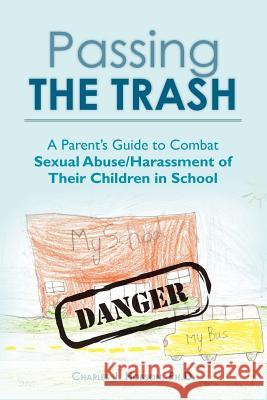Passing the Trash: A Parent's Guide to Combat Sexual Abuse/Harassment of Their Children in School » książka
Passing the Trash: A Parent's Guide to Combat Sexual Abuse/Harassment of Their Children in School
ISBN-13: 9781478309123 / Angielski / Miękka / 2012 / 196 str.
Recent research indicates that nearly 10% of today's K-12 students--a stunning total of 4.5 million boys and girls--have been victimes of sexual abuse/harassment by educators in the seemingly safe and sheltered environment of their local schools. Writing from the perspective of a concerned parent and grandparent, while equally drawing upon his academic experience, expert witness work in discrmination cases, and ongoing research on sexual harassment in education, Dr. Charles J. Hobson has given parents, educational professionals, child advocates, and law enforcement personnel an indispensable and timely resource in the form of his new book, Passing the Trash: A Parent's Guide to Combat Sexual Abuse/Harassment of Their Children in School. This informative guidebook seeks to educate parents and the broader commonity of grandparents, relativee, and caregivers, alerting them to the horrible reality of the pandemic of sexual abuse/harassment present in America's schools. Citing actual cases and distilling findings of authoritative studies into easy-to-understand summaries, Dr. Hobson offers a comprehensive assessment of the nefariuos ways in which child sexual abuse and harassment have been allowed to flourish in the school environment, while also detailing the various dynamics and influential forces that have allowed this problem to continue unabated for decades. Passing the Trash delivers much more that data and statistical trends however. Dr. Hobson provides practical tools and proven methods for comating school-based sexual abuse/harassment. Included are aggressive strategies for confronting school officials and teachers, detailed information on protocols for filing and documenting complaints with government agencies and law enforcement officials, and specific advice about how to educate and protect one's children from sexual predators at school. A 2010 report to Congress entitled, "K-12 Education: Selected Cases of Public and Private Schools That Hired or Retained Individuals with Histories of Sexual Misconduct," cited the most outrageous and pervasive problem in this area was a phenomenon know as "passing the trash." This is a common, decades long practice whereby school systems encourage child sexual offenders to voluntarily resign in exchange for a positive letter of reference, no legally required reporting to police, and no disciplinary action. In such secret deals, child victims are not even acknowledged and certainly not given the counseling support they need to recover. In the wake of recent, ongoing sexual abuse scandals involving Penn State and the Catholic Church, there has never benn agreater need for parental vigilance and protective action. Passing the Trash will equip readers with the knowledge and tools needed to insure that they can take charge of their children's safety at school and shield them from educator sexual predators. It will also help create the public awareness and understanding necessary to bring this insidious problem under control. The bottom line is, if you are interested in protecting your daughter or son from sexual abuse/harassment at school, then this book is required reading for you and other like-minded parents and grandparents.
Zawartość książki może nie spełniać oczekiwań – reklamacje nie obejmują treści, która mogła nie być redakcyjnie ani merytorycznie opracowana.











